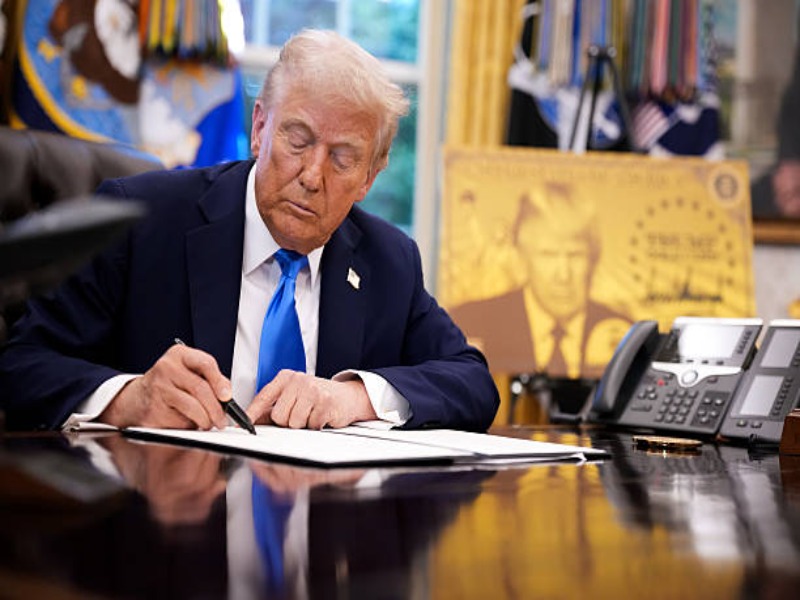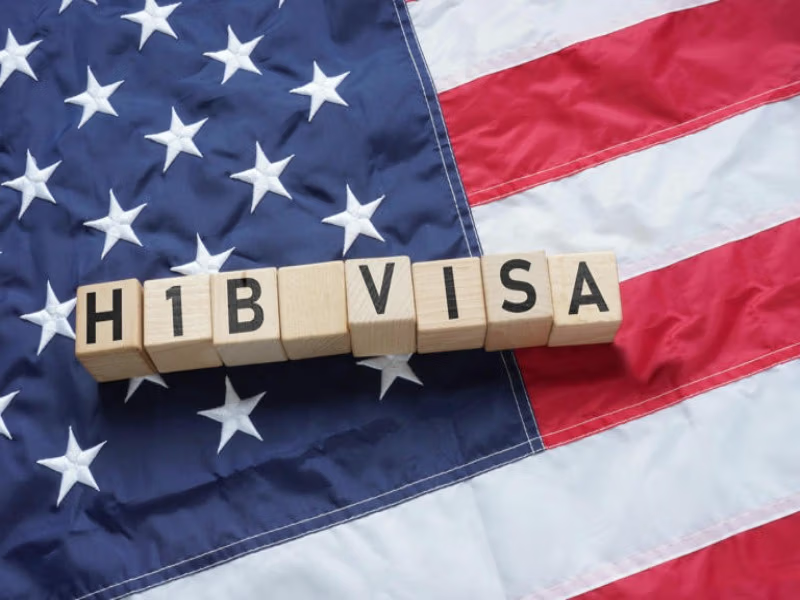Shares of major Indian information technology companies declined on Monday following the imposition of a $100,000 fee on new H-1B visa applications by U.S. President Donald Trump. This policy is expected to increase operational costs and potentially reduce revenue growth in the United States, the sector’s largest market.
The Indian information technology sector derives approximately 57 percent of its revenue from the United States. The industry has historically benefited from U.S. work visa programs and the outsourcing of software and business services, which remains a controversial topic among American job-seekers due to competition with lower-cost Indian labor.
The technology sub-index declined by nearly 3 percent, representing the largest decrease among sector indices for the day. This decline contributed to a 50 0.2 percent reduction in the benchmark Nifty 50 index.
On Monday, ICICI Direct, an online trading platform for ICICI Securities, stated the client, “Due to the near-term pressure on margins amid an already tough market, we believe this is sentimentally negative for the sector.”
With 71 percent of approved beneficiaries, India stands as the biggest recipient of H-1B visas last year.
ICICI Securities has predicted that Trump’s decision could cut profit margins by about 1 percentage point and reduce earnings for IT companies by roughly 6%, assuming they keep hiring Indians under the scheme.
Trump’s overhaul of the H-1B program marks a significant move by his administration to change the landscape of temporary employment visas.

According to Jefferies analysts, this move is specified as “$100,000 curveball for the Indian IT,” noting that the industry has about four to five years to adapt, as the increased fees will only affect new applications.
Industry experts and other analysts stated that Indian IT companies will start to lean less on H-1B visas and ramp up local hiring in the U.S., as well as look to bring in talent from nearby countries like Mexico and Canada.
According to Nasscom, the Indian IT industry’s representative body, the number of H-1B visas granted to major Indian and India-focused firms has dropped to just over 10,000 in 2024, down from nearly 15,000 in 2015. They believe that Trump’s directive will have a minimal impact since Indian companies have already significantly cut back on their dependence on H-1B visas.
On Monday, Mphasis took a hit, leading losses in the tech sub-index with a 4.4 percent drop. IT giants TCS and Infosys each saw declines of about 3 percent, while Wipro fell by 2 percent.
Analysts at TD Cowen remarked that Trump’s order, “is among the last things that the sector sentiment needed, amid persistent pressure weighing on growth from geopolitical and macro uncertainties and structural concerns caused by GenAI.”
As the Indian IT sector faces this new hurdle, it is also waiting for clarity on a proposed 25 percent tax on outsourcing payments, all while grappling with sluggish revenue growth in its primary U.S. market.
Clients are postponing non-essential tech spending due to inflationary pressures and tariff uncertainties. So far this year, IT stocks have been the worst performers, plummeting 18 percent compared to a 7.1 percent increase in the benchmark Nifty 50 index.






